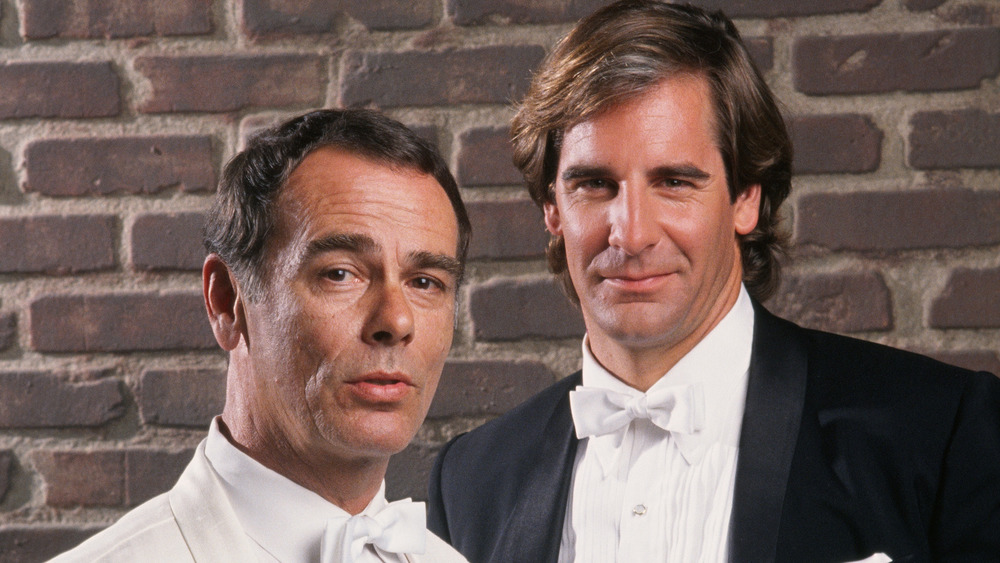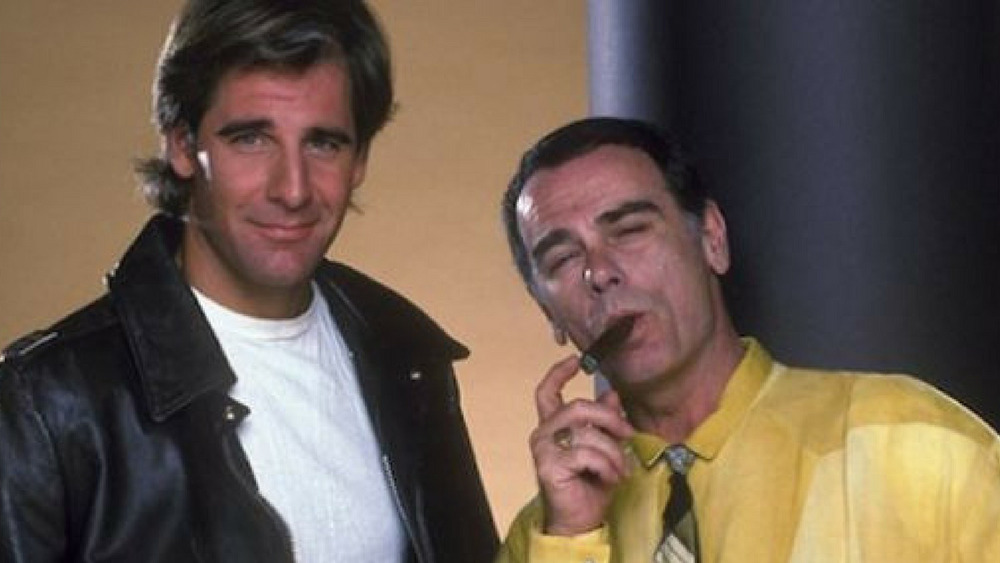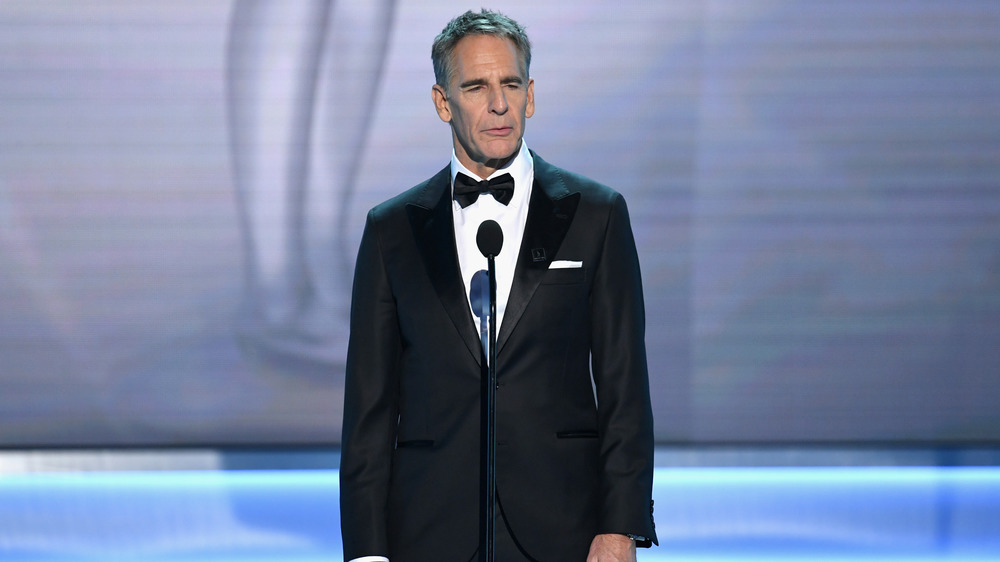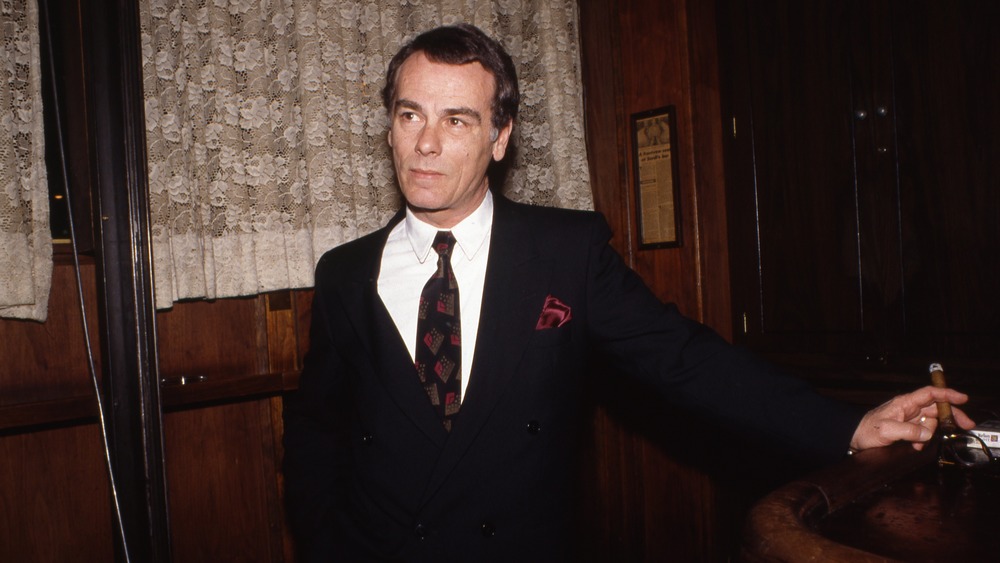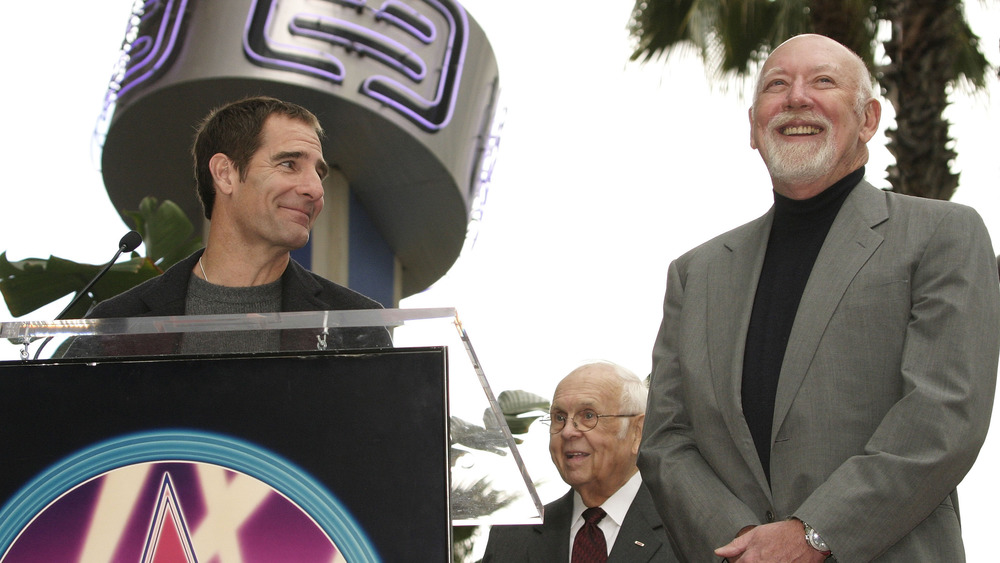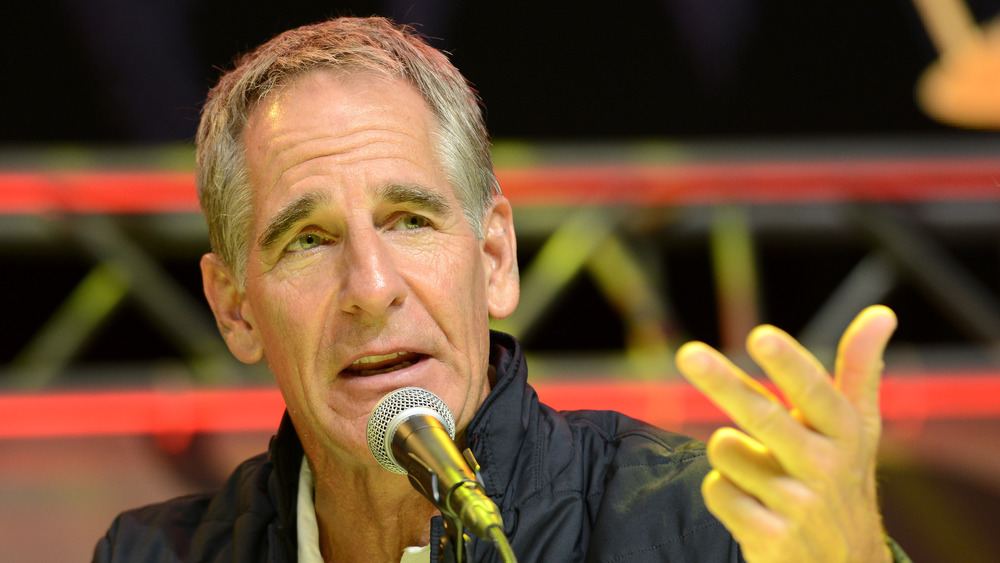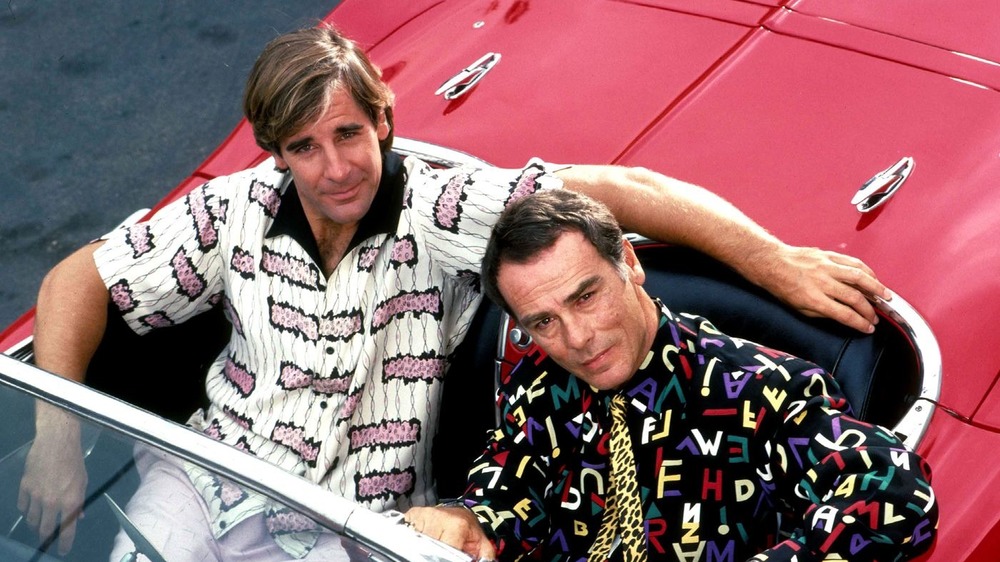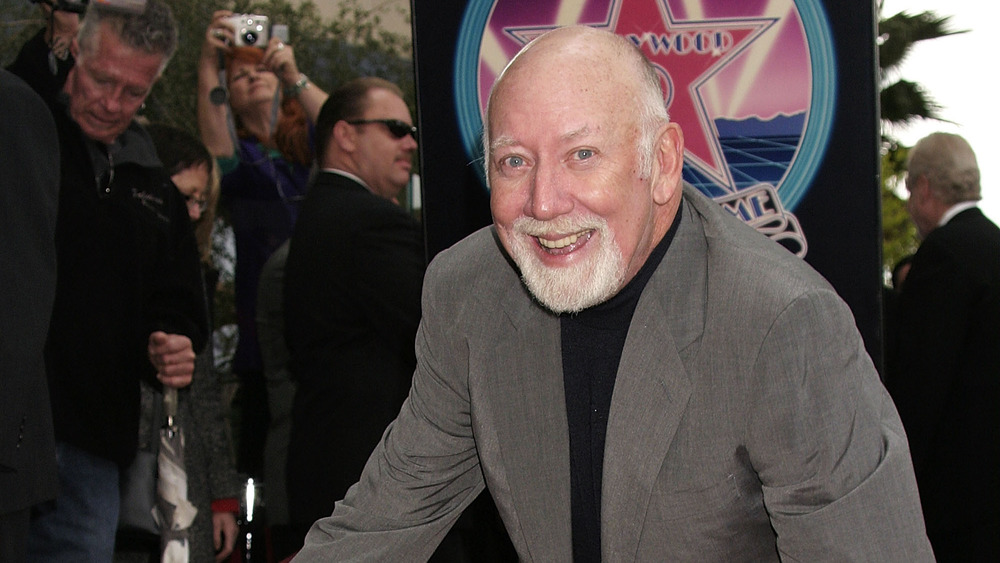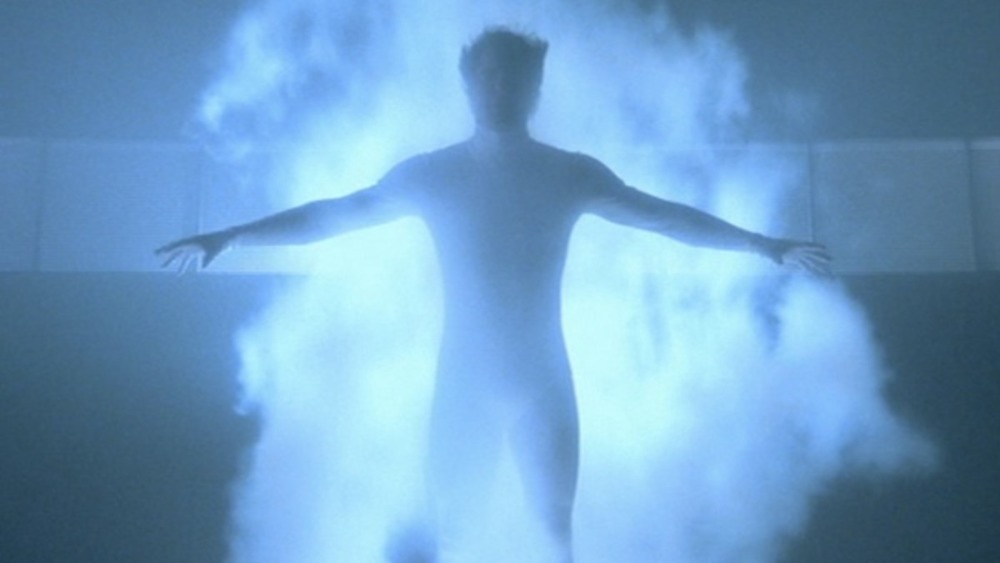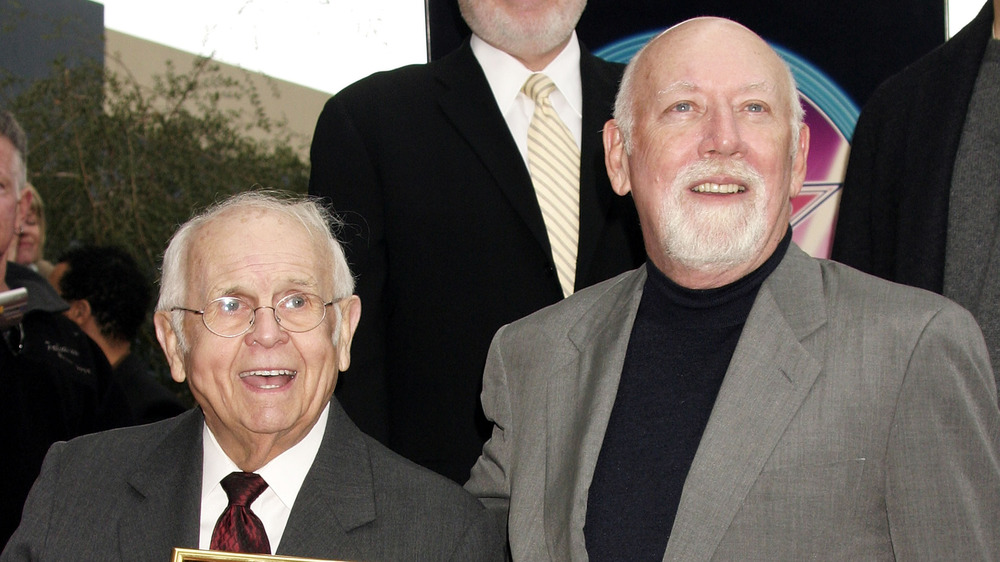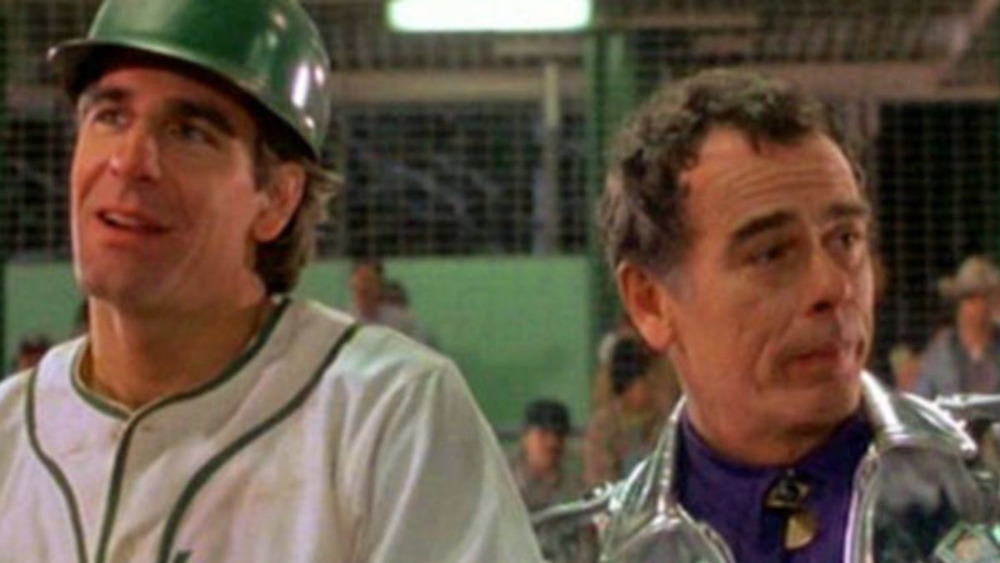The Untold Truth Of Quantum Leap
We may receive a commission on purchases made from links.
There's little about Quantum Leap that isn't incredible.
It's a high-concept sci-fi show about a rogue scientist who finds himself traveling into the past by possessing other people's bodies. The experimental nature of the kinda sorta time machine means that Dr. Sam Beckett has no control over where he lands in time or when he leaves, learning through experimentation that the traveling activates when he sets right a historical wrong. He's pushed to help so that he might one day "leap" back into his own body.
Leap debuted in 1989 and is an amazing artifact of the sort of big swings hegemonic network television could occasionally take. The concept is a big lift for first time viewers. Starting the series with a movie-length episode that featured fighter pilots crashing multiple jets had to be no small ask of the number crunchers. Showrunner Donald Bellisario rewarded that trust with an ingenious show about endearing characters that lasted for five seasons.
At its core, it's a television writing master stroke, a premise that stays fresh by running "problem of the week" episodes and the longer narrative of Beckett trying to regain his memory simultaneously. It rewards close watching while also putting on something that could be enjoyed by more passive viewers. But even with devoted fans devouring every new detail, there's quite a few interesting facts about the series that might have been buried in the intervening decades. With that in mind, we've gathered some of our favorite trivia, tidbits and little known facts about Quantum Leap.
The rules of the show were more like suggestions
In the days before widespread access to the internet and infinite replay ability, it was a lot easier to get away with breaking your own show's rules. Quantum Leap is built around a machine that can send a user back or forward within their own lifetime. In the case of the show's main character Sam Beckett, that set a hard lower limit at the year of his birth: 1953. However, the series' writers conveniently forgot that rule when it suited them.
On several occasions, the writers bothered to dream up a technicality to slip around this. Several episodes set in 1952 were within Beckett's timeline because he was somewhere on Earth as an unborn child. One episode goes so far as to have Sam and his hologram companion Al switch places so that Sam can travel to 1945, within the older man's life.
However, there was at least one time where the rule book was entirely chucked. In "The Leap Between The States," Beckett leapt into the body of a Union soldier during the Civil War. The man was his great-grandfather and the flagrant disregard was hand-waved away by noting that Sam and his distant relative shared remarkably similar genetics.
Sam's catchphrase was ad-libbed
Bellisario struck gold when he found Scott Bakula. The virtual unknown in the world of television was the first person cast for the show, and Bellisario knew he had found his lead immediately.
"He walked out and the door closed. And I went, 'That's the guy," the series creator said of Bakula's audition.
That Bakula was even auditioning was a bit of blind luck. The actor had found success as a Broadway actor, even being nominated for a Tony award, but he felt the pull of Los Angeles and traveled to Hollywood against his theater friends' advice.
That serendipity continued into the series pilot. Beckett's catchphrase of "Oh, boy" was ad-libbed by Bakula, and Bellisario liked the choice so much that he began writing it into future episodes. Bellisario has been a tireless booster of Bakula ever since.
"Scott should have won an Emmy. There's not a doubt in my mind that man deserves an Emmy," Bellisario said of his constant dual performances.
Al's cigars were equally apropos of nothing
Dean Stockwell is the polar opposite of Scott Bakula. At least he was in 1989. The legendary Hollywood actor took home the top acting prize at Cannes multiple times. He had been nominated for an Academy Award the year before Leap began. He was a huge get for an unproven, high-concept science fiction series.
Bakula said he was astounded at the opportunity to work alongside Stockwell.
"All of a sudden Dean Stockwell comes on board, and I'm thinking, 'Holy cow, this is amazing!'" he shared. "I was just trying to keep my head above water and not screw it up, to be quite honest."
As a big name, Dean was in a position to make suggestions about his character. He suggested that the swaggering Al should smoke cigars for selfish reasons, joking that it "a good way to get free cigars for five years."
Connections to science fiction (and science fact)
Stockwell wasn't the only old hand on the set of Quantum Leap. Series creator Donald Bellisario was already known as a hitmaker, having created Magnum PI and Airwolf before selling the idea of Quantum Leap.
He had also worked as a writer and producer on the original run of Battlestar Galactica, which served as a springboard for the idea that would become Leap. An original idea for the series reboot in 1980 had Battlestar characters traveling through time to set right historical wrongs.
That idea was dropped, but Bellisario held onto the premise because he desperately wanted the narrative freedom of an anthology series. He said the networks hated anthologies on principle, because they cut down the ability to create marketable characters.
"One way to do an anthology was to do a time travel show, he said of Leap's workaround. "It would have one or two characters that the audience would get to love and I could tell any story I want."
Though the show's conceit was purely speculative, he grabbed a title from our world.
"I was reading a book called Coming of Age in the Milky Way and it took man from when he looked up at stars and all the way to quantum physics, and it gave the history of everything. And the quantum leap is a physical thing that happens that you can't explain," he said.
Scott Bakula has his own potential leaps
It's impossible not to consider where you'd like to travel in your own lifetime, watching a show like Quantum Leap. The urge was even stronger among those who worked on the series, who all have story ideas they wish had come to the screen over the course of five years.
As Dr. Sam Beckett, Bakula's potential leaps held particular weight. The actor was asked in 2016 about possible historical events he would have liked to tackle on the show, beyond the beloved two-part episode based around Lee Harvey Oswald.
"I wish, certainly, I could go back and change the course of any of the World Wars that have caused so many losses," he told The Reel Word. "And of course, more recently when we think about 9/11 or things like that, if we could have had knowledge to stop some of those things, you'd want to do that. You know, it would be fun to go back to the days of yore and the courts of such and such, but I always tend to think more about the huge world events that have happened and if there was some way we could have prevented these big disasters."
The show's dealings with heavy issues lost advertisers
Quantum Leap wasn't afraid to take on heavy issues, to both its benefit and occasional detriment. Episodes where Sam leapt into the body of a man who helped kickstart the civil rights movement (thereby giving a white character credit for it) and an unfortunate episode where Beckett inhabited the body of a person with Down's syndrome are probably best forgotten. On the other hand, episodes that dealt with animal rights and issues of sexism are fondly remembered.
The show itself didn't need the benefit of hindsight to see if its progressivism would go over well. One particular episode, dealing with homophobia and mistreatment of the gay community, lost the show a considerable amount of financial support at the time.
In the episode, Beckett travels into the body of a naval cadet who tries to keep his gay friend from being bullied by their classmates. The episode caused controversy among advertisers for its support of gay rights and riled up activists for not going far enough. The show reportedly lost as much as $500,000 worth of ad revenue for that episode. Bellisario put his response in the mouth of Sam Beckett, who lambasted the hologram Al for homophobic remarks.
"Get out and don't come back until you've joined the 20th Century!" he yelled.
The show had extremely devoted fans
Fan pressure to keep beloved but under-watched shows alive is a given these days, especially when network executives are a tweet away. The dedicated fans of Quantum Leap put in quite a bit of effort to keep the show going after rumors of cancellation swirled following its third season.
"They were part of a huge letter-writing campaign when our show was on the cusp of being canceled," Bakula explained. "They did a commercial on NBC. Warren Littlefield was the president at the time. The commercial was them dumping letters...the letters were falling all over him, and he said, 'All right, all right, enough. Quantum Leap's coming back. Stop writing!'"
The enthusiasm was enough to buy Leap two more seasons, though it would still end unexpectedly. The show was canceled at the tail end of the fifth season, after filming had wrapped on what would become its final episode.
Five seasons and a movie?
Quantum Leap was eventually canceled after five seasons, but Bellisario has yet to give up hope of returning to the series he has anointed as his favorite. He's remained close with Bakula, bringing him back to what is now likely his most prominent role: Dwayne Pride on NCIS: New Orleans. And as recently as 2017, Bellisario was scheming up a feature length return for Leap.
"I just finished writing a Quantum Leap feature. I don't know what's going to happen with it, but I did write it," he told EW.
Bellisario offered little new information about the script he wrote, only noting that his process around writing Leap has not changed.
"I write things exactly the same way. I just start writing and I let them take me wherever it's going to take me. I'm entertained the same way the audience is," he said. "So I just put Scott and Dean [Stockwell] in my head, kind of rebooted them, and went from there."
For fans who need more stories outside of the series' five seasons, the show has an expanded universe of comics and novels.
The finale was a half-measure
The controversial ending of Quantum Leap still rankles fans old enough to remember it airing. For the unfamiliar, Beckett leaps into a bar in the year of his birth. When he looks in the mirror, he sees himself as an adult. He talks to the bartender, played by Bruce McGill, about why he created the Quantum Leap project in the first place. The bar is full of people he's helped over the years. At the end of the episode, a title card lets viewers know that Sam never made it home.
The episode was shot with the show on the brink of cancellation, and tried to function as both a season finale that could be open to further adventures and a series finale should the program get the axe. Scenes were shot that involved Al finally leaping in search of Sam. These were left out and replaced with a terse series of title cards once the show had been canceled.
"it was a great episode. Last episodes are always controversial. I always say to writers, 'If you want a challenge more than writing just an hour of television, write an hour of television that is the last hour of television that show will ever have on; write it so that it could also come back next fall; write it so that it could possibly become a movie of the week; [and] write it so that it could still potentially be a feature film someday. And make everybody happy...' If you go back and watch that episode, [Bellisario] checked off all those boxes," Bakula said.
The series creator had personal ties to the last on-screen leap
Though many fans were left cold by the experience of the finale, Bellisario crafted it out of a warm childhood memory. The coal town bar was a recreation of Bellisario's father's bar, as well as he could remember it.
"I created Quantum Leap, my dad created me, so I made it in my dad's bar," Bellisario told Emmy TV Legends. "We recreated that bar to every detail that I could remember or find in photographs. I even had the taps from the bar and we used those. The ice cream cooler was the same; the back bar was the same. I did it as an homage to my dad and I did it because I wanted to sit there and be back there."
The episode is a bit of a coming home for Sam as well, just not in the sense that fans wanted. He reconnected with many of the people he had helped over the years, as part of Bellisario's plan to create a pseudo-finale.
Everyone involved wanted a different ending
Though Bakula and Bellisario will both defend their work on the finale, their desire to return to the series arguably hints at their true feelings about the rushed ending. Just last year, Bakula fantasized about returning to the role on an episode of The Talk.
"Well, there are so many things going on right now that need to be put right, that are currently going wrong, that [Sam] would be very, very busy. Lots to do," he said.
All of the principal players are still alive, though Bellisario and Stockwell are both well into their eighties. The long-in-the-tooth Leapers make a reunion for anything more than a one-off unlikely. Still, interviews with Bakula, Bellisario and (to some extent) Stockwell show that Leap is a special show to them. it's clear that the endless crusade to set things right embodied by Sam Beckett still resonates with the folks who created him.
